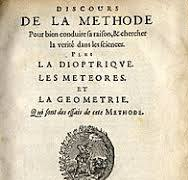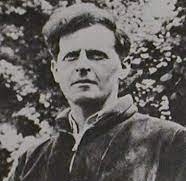パスカル「パンセ」考える葦

ブレーズ・パスカル(Blaise Pascal、1623年6月19日 – 1662年8月19日)
パスカルは、神の存在を証明することが、不可能であるなら、信仰する、あるいは信仰させる理由を考えました。( おそらく無神論者を説得するためだったのでしょう。 ) 4つのケースを仮定してどれに賭けるととくかを議論しています。
4つのケース
1.神を信仰するとき、神が存在する。
2.神を信仰するとき、神が存在しない。
3.神を信仰しないとき、神が存在する。
4.神を信仰しないとき、神が存在しない。
1のケースは、すべて得られる全部勝ちといっています。
2のケースは、少し道楽的楽しみは減るかもしれないが、失うものはほとんどない。
3のケースは、最悪で、これ以上の悲惨はない。
4のケースは、何の問題もない。
この結果を考察して、あなたならどうするかという選択をパスカルはせまっています。下記はパスカルの ”パンセ” からの抜粋でスタンフォード大学の哲学百科事典からの英文です。(和訳はサイト運営者の直訳で申し訳なし)中公文庫から出ている 「パンセ」 2011年29刷では、第三章 賭の必要性について 233 159ページあたりです。
| God exists | God does not exist | |
| for God | Gain all | Status quo |
| against God | Misery | Status quo |
“God is, or He is not.” But to which side shall we incline? Reason can decide nothing here. There is an infinite chaos which separated us. A game is being played at the extremity of this infinite distance where heads or tails will turn up…
Which will you choose then? Let us see. Since you must choose, let us see which interests you least.
You have two things to lose, the true and the good; and two things to stake, your reason and your will, your knowledge and your happiness; and your nature has two things to shun, error and misery.
Your reason is no more shocked in choosing one rather than the other, since you must of necessity choose…
But your happiness? Let us weigh the gain and the loss in wagering that God is…
If you gain, you gain all; if you lose, you lose nothing.
Wager, then, without hesitation that He is.
From Pensées by Pascal (Stanford Encyclopedia of Philosophy)
”神は存在するか、また存在しないか。” だがわれわれはどちらの側についたらよいのだろうか。理性はここでは何も決定できない。そこにはわれわれを隔てる無限の混沌がある。この無限の距離の果てで賭けが行われ、表がでるか裏が出るのだ…
では君はどちらに賭けるか? いずれ選ばねばならないのだから どちらが君にとって利益が少ないか考えてみよう。
君には失うかもしれないものがふたつある。真と善である。また賭けるものは2つ、君の理性と君の意思、すなわち君の知識と君の幸福とである。そして君の本性が避けようとするものは2つ、誤りと悲惨とである。
君の理性は、どちらのほうを選んでも傷つけられはしない、どうしても選ばなければならない以上…
ところで君の幸福は? 神があるというほうに賭けて損得を考えてみよう…
もし君が勝てば、君は全部もうける。もし君が負けても、何も失うことはない。
だから 賭けたまえ ためらわず神が存在すると
パスカルのパンセより
米国の大学生向け教科書の解説より
=======================
Pascal’s argument presents us with a kind of betting situation, and the argument is therefore called Pascal’s Wager. It runs like this:
Either we believe in God or we do not.
1. If we believe in God and he exists, we will be rewarded with infinite bliss.
2. If we believe in God but he does not exist, then the worst that happened is that we have given up a few sinful pleasures that we might otherwise have enjoyed. But even if God doesn’t exist, the edifying feeling of having faith in Him is rewarding in itself.
3. If we do not believe, however, and God does exist, we may enjoy a few pleasurable sins, but we will be punished with eternal damnation.
4. If we do not believe and God does not exist, then, of course, there is no problem.
Now you don’t have to be much of a gambler to figure out which alternative is the better bet; it is to believe. Any rational person, therefore, will believe in God, for why risk eternal damnation in return for a few sinful earthly pleasures?
From Big Question by R.C.Solomon
======================
デカルトに対するパスカルの視線は鋭く、デカルトが神の必要性を説いているにもかかわらず、デカルトの思考は、神なくしてすますことができる可能性を指摘している。事実、近現代の自然科学は、そこから始まっている。
76
To write against those who made too profound a study of science: Descartes.
科学を深く極めすぎる人々に対しておくる言葉; デカルト
77
I cannot forgive Descartes. In all his philosophy he would have been quite willing to dispense with God. But he had to make Him give a fillip to set the world in motion; beyond this, he has no further need of God.わたしはデカルトを許すことができない。
デカルトは、彼の全哲学について、神なしで済ませたいとのぞんでいたにちがいない。 しかしデカルトは、世界が動きだすために、神に始動してもらう必要があった; だがこれから先は、デカルトにはもう神は必要なかった。
78
Descartes useless and uncertain.
デカルトは無益で不確か
79
[Descartes.—We must say summarily: “This is made by figure and motion,” for it is true. But to say what these are, and to compose the machine, is ridiculous. For it is useless, uncertain, and painful. And were it true, we do not think all philosophy is worth one hour of pain.]
============================
パスカルの 「パンセ」 から、考える葦についての有名な断章をFrom Pascal’s Pensées
347
Man is but a reed, the most feeble thing in nature; but he is a thinking reed. The entire universe need not arm itself to crush him. A vapor, a drop of water suffices to kill him. But, if the universe were to crush him, man would still be more noble than that which killed him, because he knows that he dies and the advantage which the universe has over him; the universe knows nothing of this.
All our dignity consists, then, in thought. By it we must elevate ourselves, and not by space and time which we cannot fill. Let us endeavor, then, to think well; this is the principle of morality.
L’homme n’est qu’un roseau, le plus faible de la nature, mais c’est un roseau pensant. Il ne faut pas que l’univers entier s’arme pour l’ecraser ; une vapeur, une goutte d’eau suffit pour le tuer. Mais quand l’univers l’ecraserait, l’homme serait encore plus noble que ce qui le tue puisqu’il sait qu’il meurt et l’avantage que l’univers a sur lui, l’univers n’en sait rien. Toute notre dignite consiste donc en la pensee. C’est de la qu’il faut nous relever et non de l’espace et de la duree, que nous ne saurions remplir. Travaillons donc a bien penser ; voila le principe de la morale.
人は、自然の中で最も弱い葦にすぎない。 しかし、それは考える葦である。 全宇宙が、これを押し潰すのに武装する必要はない。 一滴の水、蒸気でさえも、彼を殺すに十分である。 しかし、宇宙が人を押し潰すときも、人は人を殺すものよりも高貴であろう。 なぜなら、人は自分が死ぬこと、宇宙が自分に勝ることを知っている。 宇宙は何もこのことを知らない。 だから、我々の尊厳のすべては、考えることにある。 それにより我々自身を高めなければならない、我々の満たすことが出来ない空間や時間によってではなく。 だからよく考えこるとを努力しよう; これが道徳の原理である。
348
A thinking reed.—It is not from space that I must seek my dignity, but from the government of my thought. I shall have no more if I possess worlds. By space the universe encompasses and swallows me up like an atom; by thought I comprehend the world.
考える葦、 わたしが尊厳を求めなければならないのは、考えることを規制することからであり、空間からではない。 わたしが世界を所有できてもそうするこはない。宇宙は、空間により取り巻き、一つの原子のようにわたしをのみ込むが; わたしは考えることにより世界を理解する。
692
When I see the blindness and the wretchedness of man, when I regard the whole silent universe, and man without light, left to himself, and, as it were, lost in this corner of the universe, without knowing who has put him there, what he has come to do, what will become of him at death, and incapable of all knowledge, I become terrified, like a man who should be carried in his sleep to a dreadful desert island, and should awake without knowing where he is, and without means of escape. And thereupon I wonder how people in a condition so wretched do not fall into despair.
人間の盲目と悲惨を見、沈黙した宇宙を見つめるとき、人間が何の光ももたずただ独り放置され、いわば宇宙のこの一隅に迷い込んだように、誰が自分をそこに置いたのか、自分は何をしにそこへ来たのか、死ぬとどうなるかをも知らず、あらゆる認識を不可能にされているのを見るとき、私は眠っているあいだに荒れ果てた恐ろしい島に連れてこられて、目覚めてみると、(そこがどこなのか)わからず、そこから脱出する手段もない人のような、恐怖におそわれる。そう思うと、私は、かくも悲惨な状態にありながらどうして人が絶望に陥らないでいられるのか不思議でならない
I see other persons around me of a like nature. I ask them if they are better informed than I am. They tell me that they are not. And thereupon these wretched and lost beings, having looked around them, and seen some pleasing objects, have given and attached themselves to them. For my own part, I have not been able to attach myself to them, and, considering how strongly it appears that there is something else than what I see, I have examined whether this God has not left some sign of Himself.

